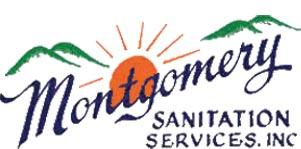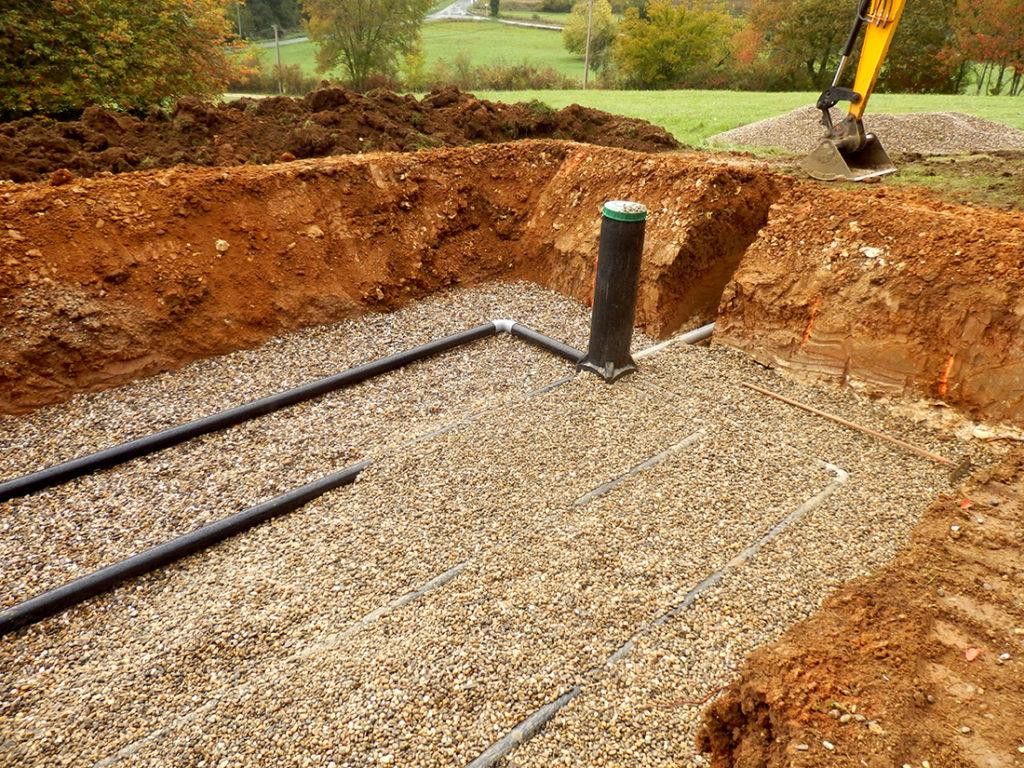There are a Vast Array of Alternative Septic Systems Available
There are many alternative septic systems to consider for the property you’re building a new home on in Virginia. You might have planned on constructing a conventional septic tank and leach field, but your land condition changed the plan. You might not have enough space to install a conventional leach field. The slope of your land doesn’t match up well for a conventional septic system. The land’s soil percolation rates might be too fast or too slow. Maybe you conventional system has failed in the past.
Whatever your reason is for not choosing a conventional septic system, there are quality alternative septic systems to consider. Whether you choose aerobic treatment, mound systems, sand filter, or another type, Montgomery Sanitation can do the installation. Today, we’re taking a look at your options for alternative septic systems.
Consider These Types of Alternative Septic Systems
- Aerobic Treatment
- Sand Filter
- Mound Systems
- Plastic Chamber Leach Field
- Pressurized Dosing
- Drip Distribution
- Constructed Wetland System
The Aerobic Treatment System is Popular Among Homeowners
An Aerobic treatment system is one of the most popular alternative septic systems in the New River Valley and beyond. These types of systems incorporate oxygen into the treatment tank with an air pump. As a result, it pulls air from above into the septic tank. The oxygen helps clean the effluent by stimulating the natural bacteria. Aerobic treatment systems use the same technology as large-scale sewage plant, but on a smaller scale.
According to the Environmental Protection Agency (EPA), there are many benefits of aerobic treatment systems, including:
“The benefits of this system are that it can be used in homes with smaller lots, inadequate soil conditions, in areas where the water table is too high, or for homes close to a surface water body sensitive to contamination by nutrients contained in wastewater effluent. Regular life-time maintenance should be expected for ATUs.”
Source: Types of Septic Systems | US EPA
Sand Filter Systems Are Environmentally Friendly
The sand filter system is another popular alternative septic system in Virginia. Sand filter septic systems use sand to remove toxins from wastewater. The sand filter system is similar to the aerobic treatment system. It also incorporates oxygen into its system to filter out pathogens. Montgomery Sanitation can install a sand filter above or below your land. A sand filter system doesn’t have a leach field, which makes it environmentally friendly. The treated water can pass directly from the sand filter system to the soil without needing to flow through pipes.
Mound Systems Are Ideal for Dense or Shallow Soil
Mound systems have been around for quite some time in Virginia. Mound systems work when the soil around your home is too dense or too shallow. They also are ideal when you have a high water table. Topsoil covers mound systems, which include an extra component called a pump chamber. A pump chamber separates the effluent, or the watery mix in the middle of the tank, from the scum and sludge. The scum is at the top of the tank, while the sludge is on the bottom.
Plastic Chamber Leach Fields are Best for Small Property Lots
If you have a small lot or have property with high water tables, plastic chamber leach fields are ideal alternative septic systems. Plastic chambers, which are in the shape of half pipes, replace the gravel in the leach field, creating a void for wastewater flow. The plastic chambers are in the soil, open side facing down. They permit the effluent to come in contact with the soil beneath it. The treated water flows into the ground.
Pressurized Dosing is the Least Expensive Alternative Septic System
Pressurized dosing sounds like something a medical professional would do. In this case, a pressurized dosing system uses pressure to distribute effluent into the leach field in more measured doses. The pressurized dosing system is superb for rehabilitating a leach field after a septic system failure. This option only focuses on the dispersal of effluent into the soil. A big advantage of pressurized dosing is that it’s the least expensive alternative septic systems.
Drip Distribution Releases Septic Water Over a Large Surface
If you have a drip distribution system, it releases treated septic water over a greater surface area of land. A conventional system disperses treated water into the leach field. The drip distribution option irrigates the leach field with long, flexible tubing that releases small increments of water. One of the advantages of drip distribution is you don’t need large mounds of soil. Montgomery Sanitation inserts drip laterals into the top 6 to 12 inches of soil.
Constructed Wetland Systems Are Similar to Natural Wetlands
A constructed wetland system has the same treatment processes that occur in natural wetlands. Your Virginia home’s wastewater flows from the septic tank and enters the wetland cell. The wastewater is treated by microbes, plants, and other media that remove pathogens and nutrients. A wetland system can perform its duty either by gravity flow or pressure distribution. As wastewater flows through the wetland, it may exit the wetland and flow into a drain field for further wastewater treatment into the soil.
Virginia Requires Yearly Alternative Septic Systems Inspections
If you choose to go with an alternative septic system, you should know about the annual inspection. Property owners who have alternative septic systems are required under Virginia law to have a certified operator inspect the site annually. If you fail or refuse to follow the mandatory rules and regulations, you will face civil regulations and fines. Montgomery Sanitation is a certified alternative septic system operator. Our team is experienced in performing these detailed inspections.
Give Montgomery Sanitation a call at (540) 382-2205 or follow us on Facebook. Talk to our team today about alternative septic systems to consider in Virginia.

